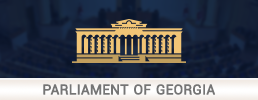2020-12-10

Adopted on December 10, 1948, the Universal Declaration of Human Rights opens with the words "All human beings are born free and equal in dignity and rights."
The Constitution of Georgia embraces the supreme value of protecting human rights and ensuring equality before the law. Georgia gives unchanging priority to respect for human rights and human rights-based approaches enshrined in state policy.
Through the coordinated work of public institutions, and in cooperation with local and international partners, public services improve year by year, and more systemic guarantees are put in place for effectively enjoying human rights.
In 2020, the Interagency Human Rights Council chaired by the Prime Minister was functionally empowered, and civil sector representation increased in the work of the council. In particular, the number of member NGOs doubled. Important steps were taken toward the development of a new long-term strategy for human rights, which is presently in its final stage of shaping.
Special attention during the pandemic is paid to the protection of life, health, and social and economic rights. An important part of the anti-crisis plan is dedicated to support for citizens.
Since the offset of the crisis, the Government of Georgia has been taking proactive steps to protect the social, civil, and economic rights of vulnerable groups and minorities, namely through ensuring access to information, basic livelihood needs, and public services, including continuous provision of free state services to victims of violence against women and domestic violence, also through expanding homecare services for elderly citizens, protection of the rights of Georgian citizens abroad and support for vulnerable groups, and sparing no effort to protect the rights of those living in the occupied territories.
Despite the pandemic, combatting violence against women and domestic violence remains the Georgian Government's priority.
Thanks to the work, direct involvement, and support of the Human Rights and Investigation Quality Monitoring Department of the Interior Ministry, police referrals and, therefore, responses to domestic violence and domestic crimes have grown.
In 2020, new legislative regulations were adopted to allow for electronic supervision of violent perpetrators.
Based on implemented changes, the risk assessment tool was upgraded, and special guidelines were developed. In cooperation with the Academy of the Interior Ministry, an online teaching course was developed on the implementation of electronic supervision, and staff members are actively retrained.
The office of witness and victim coordinator was expanded to incorporate every territorial unit of the Ministry.
Based on the Ministry's legislative initiative, the Law on Combatting Crimes against Sexual Freedom and Inviolability was adopted to secure additional guarantees for protecting the rights of minors.
To enhance public awareness, numerous events were held on violence against women and domestic violence, early marriage, and sexual harassment, and online retraining of staff members also continues.
Based on the expanded mandate of the Human Rights and Investigation Quality Monitoring Department, and effective mechanism for controlling investigation quality was put in place within the system. Based on continuous in-depth monitoring and outcome analysis, it is now possible to identify investigative flaws and develop recommendation documents on investigative action.
In 2020, public institutions-nine at the initial stage-started adopting a mechanism for responding to sexual harassment.
In 2014, the Justice Minister of Georgia signed the Istanbul Convention, followed by the Ministry developing and the Parliament approving a package of changes to combat violence against women and domestic violence. The convention's ratification in 2017 significantly improved the national mechanisms for protection from violence against women and domestic violence. This year, Georgia submitted its first report on the implementation of the Istanbul Convention.
To enhance women's political participation, the Parliament of Georgia approved mandatory gender quotas in 2020.
To improve coordination with local governments on human rights issues, a cooperation platform was created to be used for information exchange and cooperation.
Despite the pandemic, free services available in the state were continuously provided to victims of violence against women and domestic violence.
To rid themselves of violence, citizens now enjoy free legal, psychological, and social assistance. Crisis centers and shelters operate throughout the country, and so does the 116006 hotline which offers consultations on domestic violence, violence against women, sexual harassment, and trafficking in the Georgian, English, Russian, Azerbaijani, Turkish, Armenian, Arab, and Persian languages. Free anonymous calls can be placed any time.
To prevent violence, regular educational and social events are held, including through online teaching.
The state's priority is to fight against such forms of violence as early marriage and sexual harassment. Work is underway on the concept and communications strategy for eliminating early marriage.
At the outset of the pandemic, a communications strategy was developed to respond to growing risks of domestic violence and violence against women during the COVID-19 crisis. The state actively shared information on alternative ways to report violence against women and domestic violence.
Georgia annually joins the global 16-day campaign to combat violence against women and domestic violence. This year, more than 30 public institutions at central and local levels joined the campaign seeking to enhance public engagement.
In July of 2020, Georgia adopted the Law on the Rights of Persons with Disabilities, developed under the leadership of the Justice Ministry of Georgia and with engagement from persons with disabilities.
The new law seeks to regulate the legal status of persons with disabilities, to put in place guarantees for protecting their rights and freedoms, and to enshrine in Georgian legislation the key principles and values of the UN Convention on the Rights of Persons with Disabilities.
Work is underway on the development of the coordination mechanism prescribed by the Convention on the Rights of Persons with Disabilities.
Under the memorandum signed between the Administration of the Georgian Government, the Ministry of Education, Science, Culture and Sport, and the Office of the United Nations High Commissioner for Human Rights in the South Caucasus, a professional retraining program for persons with disabilities was launched in 2020. The project seeks to enhance access and engagement of persons with disabilities in professional education through creating new professional retraining courses, on one hand, and through empowering inclusive education, on the other.
The effective enforcement of the innovative juvenile justice code developed by the Justice Ministry continues.
Under the National Agency for Crime Prevention, Non-Incarceration Sentence Enforcement and Probation LEPL, a referral center for children under 14 was launched on January 1, 2020. Its goal is to engage difficult children (and family members, if need be) in relevant services/programs, based on individual characteristics.
To upgrade the protection of the rights of children, the Interior Ministry launched the Main Bureau for Juvenile Cases, which responds to criminal and administrative offenses by/against juvenile defendants and victims in Tbilisi.
In 2016, a package of legislative amendments came into force to protect homeless and working children. The law introduced the term street children to enable the state to protect not only orphans and homeless children, but also underage victims of neglect. New regulations are now in force to issue documents to street children. These documents are issued free of charge. After receiving relevant documents, they can receive education and allowances and join universal healthcare programs. Presently, work is underway on the 2021-2025 State Strategy and the 2021-2022 Action Plan for its implementation, in order to protect street and/or working children from all types of violence, including trafficking.
December 1, 2020 saw the enactment of the Georgian Government's November 5, 2020 Decree #663 On the Referral and Enforcement Procedures on the Return of Unlawfully Displaced or Unlawfully Detained Children. This decree will foster the establishment of a coordinated and effective system for referral and enforcement of the right of fast return of and relations with unlawfully displaced and unlawfully detained children.
Despite the pandemic, the state social rehabilitation and childcare program continues to operate.
In 2020, the Government of Georgia approved the concept for a center of psychological and social services for underage victims of violence. According to this document, under the Agency for State Care and Assistance For the (Statutory) Victims of Human Trafficking LEPL, a center of psychological and social services for underage victims of violence will be established.
Throughout 2021, the center will operate as a pilot project to serve underage victims of sexual abuse. The center's services seek to take into account the best interests of children and avoid repeated victimization of underage victims of sexual abuse, and to ensure their psychological and social rehabilitation in a suitable environment.
In 2020, the free 111 children's rights hotline was launched to include consultations and response to children-related issues. The 111 hotline identifies and assesses individual and situational risks and provides adequate response, in the form of both phone and in-person consultations.
To eliminate violence against children and bullying, the Office of Mandaturi in Schools of Education continues working with children, parents, teachers, and others involved in school environment, including through offering 24/7 psychological consultation services and those provided by the center of psychological and social services.
To eliminate discrimination and introduce equality policy, work on equality and anti-discrimination issues was added as one of the key directions in the work of the Interagency Human Rights Council.
To eliminate discrimination, enhance tolerance, and raise awareness, numerous educational activities were implemented, including through active involvement from youth.
The Interior Ministry launched the process of cascade staff retraining on the effective identification and investigation of hate-based crimes. Consequently, the identification of discriminatory motifs at the initial stage of investigation was significantly enhanced.
To maintain unified statistics on discrimination-based offenses stemming from intolerance, a mutual cooperation memorandum was signed, which will allow for an improved methodology for data collection to be launched in 2021.
To provide senior citizens with social and economic assistance, the rule for indexation of pensions will come into force in January of 2021, which means that growing prices will not affect the size of pensions, and every pensioner's pension will increase by no less than the inflation rate.
Starting on July 1, 2020, pensions of pensioners aged over 70 increased by 30 GEL. Pensioners in mountainous areas enjoy additional bonuses to their pensions (+20%).
Presently, with support from the Georgian Office of the UN Nations Population Fund, 60+ Clubs operate in Kutaisi and Rustavi Municipalities, to foster and promote a healthy and active way of life among senior citizens.
According to the latest information from the National Statistics Office of Georgia, Georgia's life expectancy has increased over the past few years, not least thanks to the improvements to the public healthcare system and the universal healthcare program. The life expectancy of men and women in Georgia is 69.7 and 78.2 years, respectively.
To better civil equality and integration, work is in full swing on the implementation of the State Strategy on Civil Equality and Integration and the 2015-2020 Action Plan, with both seeking to support representatives of ethnic minorities, promote their engagement in every area of social life, foster cultural diversity, and strengthen the environment of tolerance.
Georgian-language learning programs have been strengthened and enhanced to become available to every interested segment and age group.
To improve access to education for representatives of ethnic minorities, the Georgian Language Educational Program (so-called 1+4 program) is successfully operating as a simplified method for receiving higher education.
In the Kvemo Kartli and Kakheti Regions with compact settlements of representatives of ethnic minorities, social consultative councils continue their successful operations, to support the involvement of representatives of local ethnic minorities in the decision-making process.
Representatives of ethnic minorities are now able to do an internship in public agencies, this way contributing to their higher competitiveness in the process of employment and civil integration.
A large-scale awareness campaign on state programs and services, also on human rights and Georgia's European and Euro-Atlantic integration, was held for representatives of ethnic minorities.
To raise human rights awareness among public servants, in cooperation with the Civil Service Bureau and the Administration of the Georgian Government, numerous activities were implemented throughout 2020.
The above include a public servants' forum on human rights issues, a series of webinars, meetings with international experts, and others.
Despite the pandemic, numerous steps were taken in 2020 to improve access to state services.
Since 2013, 13 new public service halls opened. A total of 25 public service halls operate now throughout the country.
Since 2013, 82 new community centers opened. A total of 85 community centers operate now throughout the country.
Since 2015, on the initiative of the Justice Minister, the Training Center of Justice delivers Georgian-language courses for ethnic minorities. The courses seek to mitigate the language barrier and promote non-Georgian-speaking citizens' integration with their compatriots, to provide them with greater opportunities of using state services and foster their development and employment. Almost 300 participants have attended the courses since 2015.
To protect the rights and resocialization of inmates, on the initiative of the Justice Minister, a program for the rehabilitation and resocialization of ex-convicts was created in late 2012.
Under said program, 2,844 beneficiaries have used its services since 2012. In addition, business ideas of 142 ex-convicts (including 28 women) have been financed under the Justice Ministry's grant project.
In the spring of 2019, on the initiative of the Justice Minister, the inmates of the penitentiary #8 were employed in the field of agriculture. The penitentiary's inmates, including those serving life sentences, grow crops in a garden arranged in the facility's courtyard, to sell these crops through one of the largest trade chains and the online shop https://soplidan.ge/. The crops harvested by inmates are also purchased by several restaurants. The amounts from selling goods are revenues generated by inmates themselves.
In 2020, the Justice Minister issued the Decree on Risk and Needs Assessment for the Resocialization and Rehabilitation of Adult Convicts and Ex-Convicts, and on the Rules for Preparing, Implementing, and Monitoring Individual Plans (Case Management Rules). Said rules seeks to manage multifaceted risks related to adult convicts and ex-convicts in the Ministry's system, also to foster their resocialization and rehabilitation by using a multidisciplinary approach, and with engagement from convicts/ex-convicts.
Considering the wishes of inmates and vocations demanded in the market, professional training and retraining for inmates are planned.
To protect property rights, the large-scale land registration reform has been in full swing since 2016. Since its enactment, citizen referrals have increased 5 times on average.
Since 2016, in excess of 900,000 parcels of land have been successfully registered. Under the reform, lands roughly equaling the same area have also been registered, meaning those registered before 2016, that is, in 25 years since the regaining of Georgia's independence.
In addition, according to the Doing Business survey by the World Bank and the International Finance Corporation-which assesses 190 countries around the globe based on 10 key criteria-Georgia maintains leading positions among the top 10 performers in the launching a business and property registration components, ranking 7th in the former in 2012-2013 and 2nd in the latter.
In January of 2020, the innovative Law on Mediation was launched to ensure fast and effective justice administration and to prevent overloading by civil disputes.
The new law ensures the development of mediation and settlement-based dispute resolution, which is designed to help citizens restore their violated rights fast and wat low costs. To develop the profession of mediator, the Georgian Association of Mediators was established.
The Justice Ministry continues protecting the interests of Georgian citizens in international courts.
Since October of 2012, active work continued on Georgia's grievance filed with the Strasbourg Court against Russia.
On July 3, 2014, the Strasbourg Court, in the case of Georgian citizens deported from Russia in 2006, decided in favor of Georgia. This decision, one setting a precedent, reads that Russia carried out a coordinated policy to detain, arrest, and deport Georgian citizens en mass from the country, while the detained Georgians endured degrading and inhuman conditions.
On January 31, 2019, Georgia won a case against Russia in the compensation component of the same lawsuit, and the Strasbourg Court obligated Russia to pay 10 million euro in moral compensations to Georgian citizens. Under the Committee of Ministers of the Council of Europe, the Government of Georgia is taking every step to ensure that the Russian Federation fulfills its obligations imposed by the Strasbourg Court. The public is constantly updated on relevant developments.
In the second case, which involves Russia's human rights violations during the August 2008 war, the final session of May 23, 2018, the Ministry of Justice gave a good account of itself protecting the rights of our citizens who were subjected to ethnic cleansing and torture and whose rights were violated. To win this precedential case, Georgia produced almost 700 solid pieces of evidence and documents accompanied by legal analyses, for which the Justice Ministry had invested an enormous amount of work.
In the same vein, cooperation is in full swing with the Hague Court and Prosecutor's Office on the case of the August war. According to the case's Prosecutor Fatou Bensouda, it is quite possible to have concrete results on this case before the end of her prosecutorial tenure.
The work on the new Code on Enforcement is nearing finalization.
The code seeks to establish a new, effective system of enforcement. The code's adoption will benefit the creation of a healthy business and investment environment in the country, on one hand, and contribute to the inviolability of property rights, on the other.
A new law regulating the area of insolvency has been developed and will come into force on April 1, 2021.
The law puts in place new stimuli for rehabilitating enterprises, enhanced guarantees for protecting the rights and legal interests of creditors, on one hand, and of debtors, on the other.











